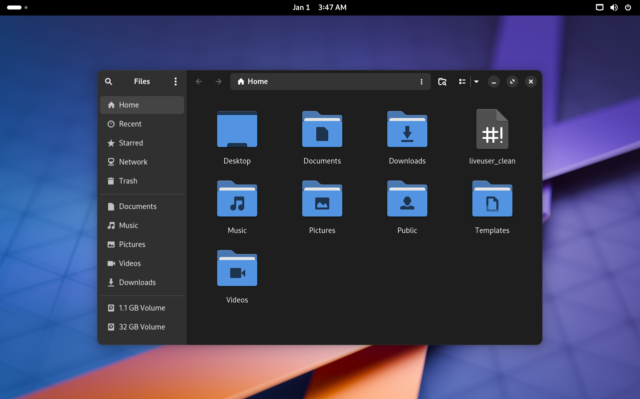Nobara 42 ditches Firefox for Brave while becoming the friendliest Fedora-based Linux distribution ever

The latest version of Nobara has officially landed, and it’s packed with many thoughtful changes that continue to make it one of the most user-friendly Linux experiences around. With version 42, the Fedora-based distribution receives GNOME 48, KDE 6.3.4, Nvidia driver version 575.144, and Linux kernel 6.14.6.
One of the most noticeable changes, however, is the web browser switch. Firefox is surprisingly out, and Brave is now the default. That might sound controversial at first, but there’s actually solid reasoning behind it.
SEE ALSO:
- Winhance 4 transforms Microsoft Windows 11 (and Windows 10) into the bloat-free, faster operating system you need
- Windows 25 solves Windows 11's biggest problem -- download it now
- 'It just works': AcreetionOS is the easy-to-use alternative to Windows 10/11 -- switch to it now
- Who needs Windows 11? FreeXP is a modern version of Microsoft's greatest OS, powered by Debian Linux
You see, the Nobara development team tested several browsers and ran into constant GPU crashes and hardware acceleration failures -- especially when scrolling through live video feeds. Firefox and its forks like LibreWolf and Floorp didn’t survive the test. Chromium and Vivaldi didn’t fare much better, particularly with Google Meet breaking when hardware acceleration was enabled.
In the end, Brave was the only browser that held up. It worked out of the box and didn’t require codec hacks or additional system packages. To keep things streamlined, the Nobara developers also applied a custom policy that disables Brave Rewards, Wallet, VPN, AI chat, and Tor. The result is a clean, fast browser that just works.
Nobara 42 also steps back from giving too much power to inexperienced users. The package manager is no longer pinned to the desktop or favorites. It’s still installed, but now users have to search for it manually. This helps prevent accidental damage from users installing system-level packages they don’t fully understand.
Another big change is the debut of Flatpost, a new app built in-house to manage Flatpak software. Unlike Discover or GNOME Software, which can be clunky or tied to specific desktop environments, Flatpost is lightweight and universal. It’s written in Python and GTK and runs well across GNOME, KDE, or even more niche setups like Hyprland.
Flatpost handles installs, removals, updates, and permission management. It even replaces Flatseal by allowing users to tweak Flatpak permissions directly. It’s a one-stop shop that simplifies software management across the board.
Notably, this release also marks Nobara’s full transition into a rolling release distro. If you were running Nobara 41, you probably already received most of these updates automatically. It’s a quiet but meaningful change that brings Nobara closer to an Arch-style model, but without sacrificing usability.
There are performance updates too. Mesa has been bumped to version 25.1.0 with patches for Wine Wayland and DOOM: The Dark Ages. The revamped driver manager now lets users toggle between open and proprietary Nvidia drivers. Additionally, you can also choose between standard and Git versions of Mesa Vulkan. That kind of flexibility is rare in a user-friendly distro.
When you add everything together, Nobara 42 is easily one of the most approachable Fedora-based distributions to date. It offers flexibility for advanced users but also shields newcomers from unnecessary complexity. You can download an ISO here now.
